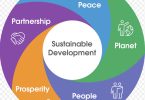What motivated you to step down from the World Travel & Tourism Council?
Jean-Claude Baumgarten: After eleven years, I thought time has come for a change and start a new chapter in my life.
Why do you think emerging markets value the contribution of travel and tourism more so than traditional markets?
Baumgarten: The leaders of these countries have recognized that travel and tourism contributes to growth and creates jobs, both top priorities on their agenda. China has taken a major step when the prime minister has clearly recognized our industry as one of the five pillars of the economy. I wish more countries would follow.
You said in November at the world travel market that you will still be a part of WTTC, in what capacity exactly?
Baumgarten: The executive committee has asked me to contribute as a vice chairman. I will be at the disposal of the Council and its president to be its ambassador and help in specific tasks.
Are you currently employed elsewhere? If so, can you tell us what you are doing now?
Baumgarten: You know how much I am fascinated by the development of the emerging economies and I will be active in those parts of the world. I am exploring different proposals which at this stage I understandably cannot talk about.
What do you expect for the organization to do in the next ten years?
Baumgarten: WTTC has grown into a significant unique international global organization. It will increasingly pursue its prime mission, which is to seek recognition of the importance of travel and tourism as an economic and social driver. It will also consolidate and increase his role as a voice of as the global travel and tourism private sector.
In your opinion, how much influence does WTTC have on global travel and tourism?
Baumgarten: WTTC is a unique organization in many ways. The fact that its members are top leaders from all components of travel and tourism, from all parts of the world with a great sense of their mission is key. This combined with a solid research and events like the global summit the Council has over the years created a forum where public and private sector meet in an informal way around very important issues locally or globally.
Tell us some of your achievements as the leader of WTTC?
Baumgarten: I am very proud that we – the members, the team and all our friends in the world – have succeeded to make this Council a truly world global forum of leaders in our industry. Our yearly summits by their content, their participants is a good example about how we work. The type of discussions “in the round” are setting the tune of our industry and give leaders to do so. WTTC’s India initiative is, may be, the best example about how the Council can contribute to create awareness and lead to decisions. Our recent membership increase in China and Russia shows is a great achievement and has a lot of potential.
You’ve obviously left quite a legacy, was it a difficult decision for you to step down?
Baumgarten: When I joined in 1999, my plan was to stay for 3 years. Eleven years after, it was certainly a difficult decision to take! In its twenty years of existence, the council had two presidents. That tells [you] how fascinating the job is!
You had the tough job of pleasing 100 of the most powerful CEOs in travel and tourism, what was it like being in your position?
Baumgarten: I remember my first executive meeting in the boardroom of American Express on the 04th of October 1999. Looking at the directors present and being very impressed, I realized the power of the organization I just joined. The following debates made me feel the readiness of its members to contribute to the mission. The challenge is to be able to keep a close contact with all of them on the issues the Council has decided to deal with. Events like 9/11 where we had a press conference planned this very day have pulled the members together. I always got advice when we had to make strategic decisions and support when we had to implement them in all parts of the world.
Tell us some of the things you’ve learned as WTTC president.
Baumgarten: Always listen, keep focused.
Do you have any regrets?
Baumgarten: Plenty, among them that my own country [of France], which relies so much on travel and tourism, has still not recognized its importance. As they say, nobody in prophet in his own country!
I want to talk about your journey as the head of WTTC, who is the most influential person that you have ever met?
Baumgarten: Take our directory and you have the answer to your question. Among the political leaders, I had the Honor to meet President Lula [of Brazil] before and during our summit in Brazil two years ago. He spent time with our executive committee, an outstanding example of a true leader who understands the value of travel and tourism for his country.
I am certain that you couldn’t have pleased everyone, what were some of your toughest decisions?
Baumgarten: In the early stage of our summits, choosing among great destinations was a great challenge; there is only one winner and many disappointed candidates. Over the last years, we have introduced request for proposal (RFP) process, which helps selecting the coming summits and keeps this pressure from the president. Then, choosing our priorities is a constant challenge.
During your tenure at WTTC, if you were to describe it in one word, what would it be?
Baumgarten: Globalization.
Character and reputation, how significant are they to being a high profile figure in travel and tourism?
Baumgarten: Openness, transparency, dialogue, presence are certainly key ingredients.
WTTC’s has been working with the United Nations World Tourism Organisation for the past few years now, what are some of products of this partnership thus far?
Baumgarten: We keep advocating public and private sector partnership, the last years, thanks to the new secretary-general, we have been able to develop common messages, cross fertilize our research, select the major challenges the industry is facing. In short, make this partnership a reality. There are many more things to be done and I am sure that this cooperation will increase in the future.
You obviously have a lot of expertise, have you considered passing on what you’ve learned by teaching, perhaps?
Baumgarten: I have always taken opportunities to give lectures during my trips–in Brazil, Montenegro and China. I will continue to do so and, if time permits, write.
Some argue that tourism cannot end under any circumstance; do you subscribe to this idea?
Baumgarten: Yes, I have been in this business over the last forty years. They are circumstances where tourism disappears because of political unrests, natural disasters or diseases, only to rebound. Most of the time, higher than before. Travel is part of the fundamental needs of human being and is here to remain and grow. Let’s never forget in all strategic decisions we make form now on that in the next thirty years: two billion new middle class consumers will come to the markets; hence contribute to the growth of travel and tourism.
What is your position on travel to conflict-ridden destinations?
Baumgarten: Don’t go during the conflict, immediately return as soon it is safe, the affected regions need your help to rebuild their economy.
Many European carriers have either added or resumed service to Iraq, how do you feel about this development?
Baumgarten: It is the step into the right direction, the country is in a region where the Western civilization has started in this part of the world, has great people and sites to visit.
Three main issues have emerged, climate change, poverty alleviation and global economic meltdown, what are your thoughts on these issues?
Baumgarten: Those issues will have to be dealt taken into account that new economies are fast becoming as resources hungry than the developed ones. Those issues can only be dealt if each of us becomes convinced that we have a personal responsibility in our professional and private life. For our industry ultimately the consumer will decide, a lot of our companies have understood this and are playing a leading role as we have shown in our various environment initiatives. Transparency will be another value which will help avoid mistakes of the past. Last, poverty and the increasing gap between the rich and poor will be over the next decades the major challenge. Recent events in the Middle East have shown that inequality is not politically sustainable. Travel and tourism has his part to play by involving local communities.
What advice given to you would you consider to be the most valuable?
Baumgarten: Keep your commitments.
What advice would you give to your successor?
Baumgarten: Focus.
What has been the most valuable lesson you’ve in your years of service in travel and tourism?
Baumgarten: The immense power of people.
What is the next chapter in Jean-Claude Baumgarten’s life going to be like?
Baumgarten: Remain active, but control my agenda instead of being controlled by it.






















